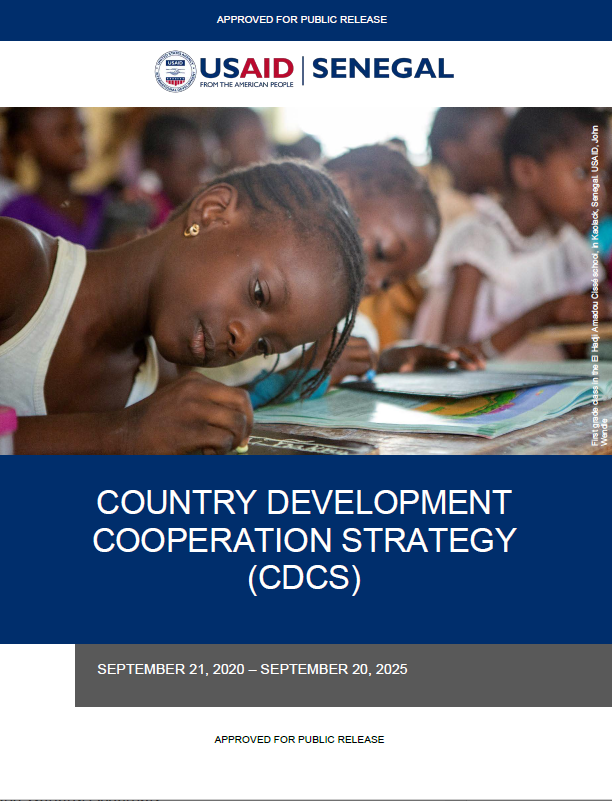Speeches Shim
USAID’s goal for the Senegal 2020-2025 Country Development Cooperation Strategy (CDCS) is for Senegal to be better able to plan and finance inclusive development by: implementing key reforms; actively engaging with a strengthened private sector and a vibrant civil society; and harnessing the potential of women and youth.
USAID will support Senegal on its journey to self-reliance through activities that increase inclusive, sustainable economic growth; improve Senegal’s human capital; and increase the effectiveness of the Government of Senegal (GOS) and its accountability to the Senegalese people. The CDCS aligns with the ambitious goals of the GOS’ national development plan, the Plan Sénégal Emergent, with each proposed Development Objective (DO) matching a corresponding Plan “pillar.” Activities under the CDCS will additionally be aligned to Senegal’s five-year Priority Action Plans, with the current year Phase II Action Plan (PAP 2A) to take into account the damage incurred to the local economy by the COVID-19 pandemic. The CDCS also aligns with broader U.S. Government (USG) priorities as outlined in the Embassy Dakar Integrated Country Strategy, National Security Strategy (NSS), and Department of State-USAID Joint Strategic Plan (JSP) / Joint Regional Strategy for Africa. This is especially important given Senegal’s role as a strong and stable ally promoting regional stability.
Over the next five years, USAID expects to achieve the following: increased engagement with the private sector to find market-based solutions to development challenges; empowerment of women and the country’s growing youth population through activities increasing economic opportunities and participation in decision-making; and strengthened civil society organizations that are better equipped to advocate for positive change. Furthermore, the CDCS will help advance a prosperous, secure, inclusive and democratic Senegal by addressing major gender and social inclusion issues including: women’s declining economic opportunities relative to men’s; gender-based violence (GBV); and gender integration gaps in public policies, budgets, and institutions. In addition, those who experience unequal access to development opportunities like poor rural and peri-urban men, youth, and people with disabilities will be included in USAID programming under this CDCS.



Comment
Make a general inquiry or suggest an improvement.